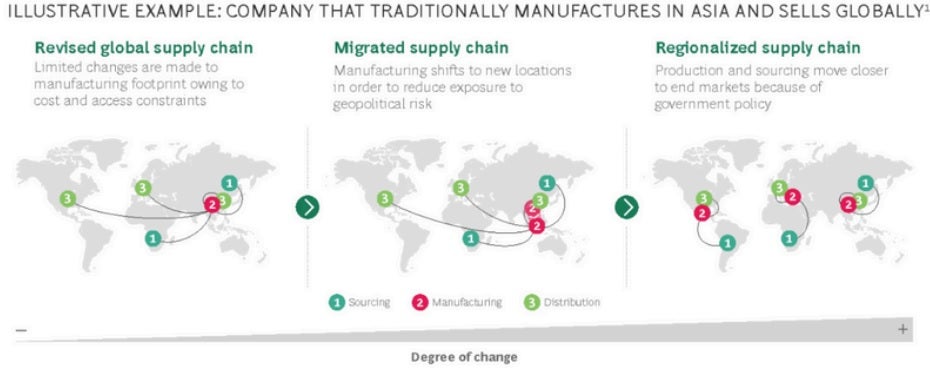In its “Retail Sourcing Report: Q3/Q4 2024 Insights & Indicators" TradeBeyond indicates how recent geopolitical issues are impacting supply chain sourcing strategies.
For instance, the Middle East conflict has made the Red Sea shipping route unviable, forcing container ships to take the longer and more expensive route around South Africa’s Cape. Along with Asian Port congestion limiting container capacity, container shipping costs are pushing up toward pandemic levels.
Meanwhile, the Russia/Ukraine conflict has resulted in a reconfiguring of trade, with Russia discounting its plentiful energy exports to bypass sanctions and the decline of its important Europe markets. China and Russia have emerged as a powerful trading alliance, and a major challenge to US economic and political hegemony. For Europe, high energy prices have accelerated the push towards cleaner energy.
While the large emerging economies such as India, Mexico, Brazil and the recently expanded BRICS alliance, a significant trading bloc, together account for over 37% of global GDP
When it comes to the US, the risks of global dependency on China became more apparent in the pandemic, when supply chain bottlenecks led to significant component and product shortages. This intensified the search for alternate supply sources, details the report.
“Onshoring and nearshoring trends accelerated with Mexico as one of the primary beneficiaries. In 2023, Mexico surpassed China as one of the US’s largest trading partners, while in Europe, the US recently overtook China as Germany’s top trading partner," reads the report.

Credit: TradeBeyond Retail Sourcing Report: Q3/Q4 2024 Insights & Indicators.
Seven identifiable impacts of de-globalisation
De-Dollarisation of the Global South: The trend of de-dollarisation – adopting alternate currencies for trade settlement - has now extended to several countries with strong trade relationships with China. The BRICS alliance (Brazil, Russia, India, China and South Africa) has pushed harder for de-dollarisation since 2022 under the principle that developing economies are under threat from US sanctions at any time given their dependence on the dollar. The BRICS countries are pushing for their currencies to be used for trade settlement ahead of the dollar and developing new payment mechanisms.
Supply Side Shortages: This could impact prices with significant rises over time due to a mismatch in supply and demand.
Increased Tariffs: Tariffs can have a significant impact on global trade with a domino effect of shuffling trade flow. The burden of tariffs ultimately falls on the consumer, in the higher prices paid for the affected products.
Higher Defence Spending: Analyst report that this increase is directly related to the escalation in global geopolitical tension, especially between economic powerhouses. Aside from the drain on budgets, this spending heightens the potential and risk of any conflict.
Emerging economy growth: Several emerging economies stand to benefit from the restructuring of global supply chains. These include India, Malaysia, the Philippines, Thailand, Vietnam, and Indonesia. Each country has strengths and weaknesses that determine the kind of industries they attract. Another indicator of the growing influence of developing countries is the expansion of the BRICS alliance. As of 1 Jan, the BRICS bloc of countries, which consisted of Brazil, Russia, India, China, and South Africa expanded to eleven countries. The addition of Egypt, Ethiopia, Iran, and the United Arab Emirates now pushes the BRICS share of global GDP to 37.3%. In addition to economic power, the BRICS is now a powerful alliance that can influence geopolitical agendas.
Fragmentation of climate change initiatives: Addressing climate change requires a coordinated global effort, communication, and shared goals, which is difficult given the current geopolitical tension. For example, the EU Carbon Border Adjustment Mechanism (CBAM) is an initiative requiring multi-lateral support, which is unlikely, given the current political climate. It is hard enough to gain consensus on the sustainability agenda among friendly parties across borders. This challenge will intensify in the current climate of global divisiveness.









